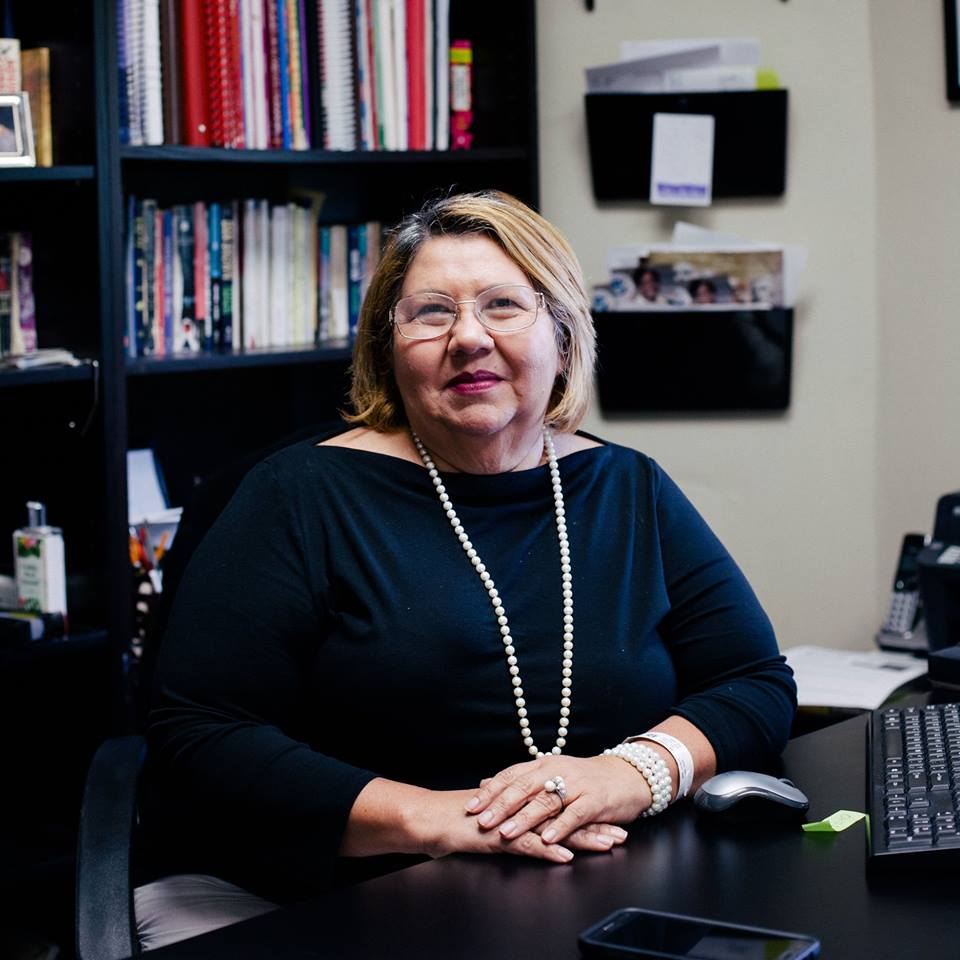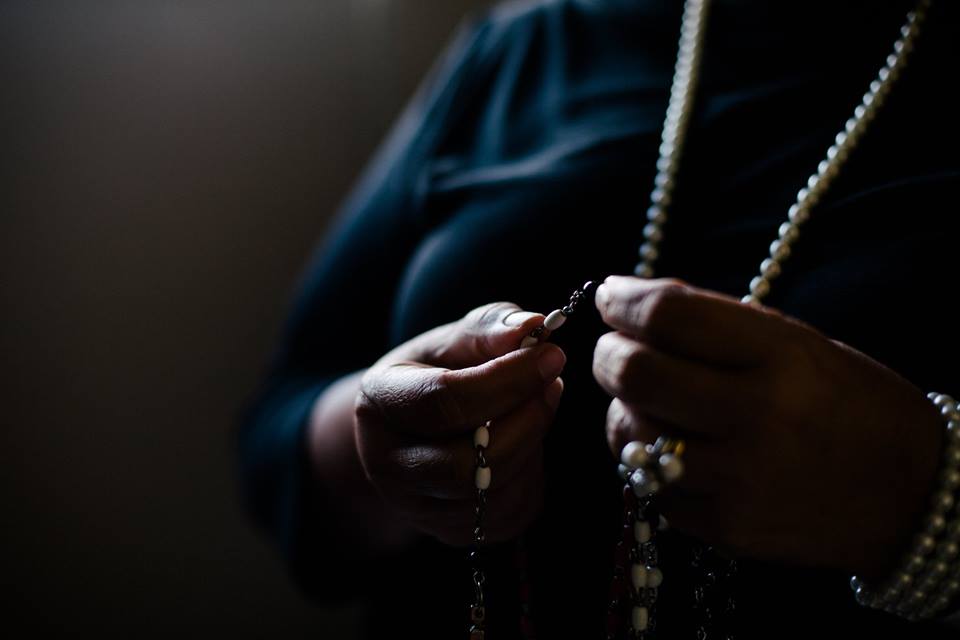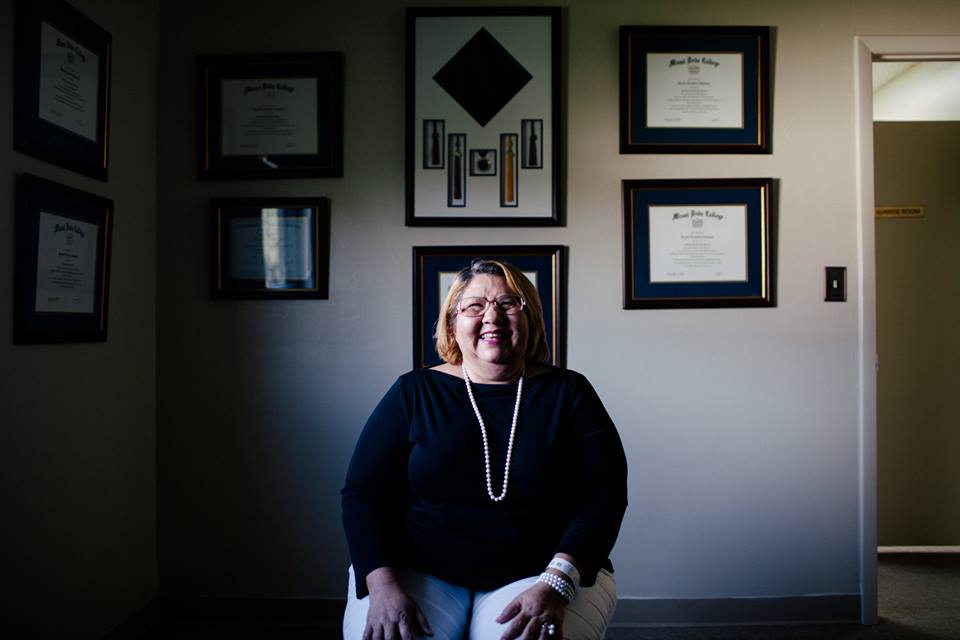
Yraida Guanipa has been fighting for human rights since serving a 15-year prison sentence in Florida, but it’s never been easy. She is the founder for the YG Institute in Miami, which focuses on protecting the safety of children and families affected by prison. She’s also a key plaintiff in Hand v. Scott, a class action suit arguing against the standardless process used by the Florida clemency board to restore voting rights.
It has changed a lot. When I came to the United States 36 years ago, I was fascinated with this country. I was fascinated to see how a person working in a restaurant could live in a house and eat, and be offered all the benefits that a job would give to the employees. You’d go to any store, like a JCPenny or Sears, and everyone there just seemed so friendly and so helpful. Now, it’s not like that. You can hardly find a job, especially in Miami, that will pay you good or a job that will have benefits. You go to the stores you go to the government places and it seems like maybe everybody is having hard times. It’s not as friendly as it used to be. And leave that alone if you have a criminal record.
When I was arrested in 1996, I didn’t know anything about the judicial system or the sentencing guidelines. I didn’t know that in order for you to go to trial you have to have money. I decided go to trial because I was willing to plead guilty for what was my participation in a crime, but I ended up with a 15-year sentence and five years probation. My sons were one and two years old when that happened, and the authorities sent me more than 500 miles away from Miami. At that moment, I felt like I was placed on another planet, like on Venus. It was even worse that it is in third world countries, because they take moms and dads miles and miles away from their children even for a nonviolent first time offender, like me.
There need to be some changes for the future children. To evolve and be better.
In prison. I even did a hunger strike within prison,when they took me almost dead out of the hole. And the hole is isolation, the isolation room within the isolation building. That’s when I started working on human rights violations, and the small things that matter. Women didn’t have sanitary napkins in prison. Females wear male uniforms because they weren’t making uniforms for female prisoners in the beginning. And I saw this increasing female population in prison, which I think of as the slavery of the 21st century. So when I was there, I got in contact with organizations that help prisoners, including the ACLU. When I finished up my probation, I started collecting signatures with ACLU for the amendment. But at that time, about five years ago, we had no idea that this would lead us to where we are now.

When I was in prison I used to work outside the male prison. And when I was driving the car to the male prison, I used to see the buses coming out with prisoners with chains on their feet and their hands coming down the bus, and it reminded me of the slavery times, when they used to bring out the slaves in shackles and chains to work. It was heads and heads of people coming to prison to work in the factories. The prison system has transformed for the last 60 years into slave labor. And they don’t see the prisoners and human, or not even as a criminal, they see us as a head for production. We need to produce 15,000 pieces of furniture, and we need the heads for that. And I worked 15 years for the prison industry. It’s like working camps of the Nazi era, but the only thing missing is the death chamber. But they kill you with work.
When you finish you sentencing, you’ve paid your debt to society. But that record goes with you for the rest of your life. It doesn’t only affect me, but affects my children and my grandchildren because there will always be someone over there that will be bullying my grandchildren saying, “Your grandma was in prison for 11 years.”
That’s right, and because every minute so many people are arrested in the state of Florida, by the time we have the midterms in November, it could be up to 2 million people. You have to wait seven years after you complete everything, even your probation time, and I completed my probation time in 2012, so I won’t even be able to apply for my rights until 2019. And with the backlog that we have, it may take me 15 years for me to get in front of the clemency board. So I’ll probably be dead at that time. It doesn’t matter that I have done in my time in prison, it doesn’t matter what I have done after my time in prison. It doesn’t matter.
I did my halfway house time in Riverside. When I was there, I made a promise to myself that I would always go back there to help the people that were coming behind me. So I’ve always returned there to volunteer my time and what I can find to share with the people there. One day years after I was released, the director of the halfway house invited me for lunch to introduce me to a person that “fights like me”. That’s what he said. That’s where I met Desmond Meade. We started talking about what was happening in voting rights in other states, and in Florida. One day he sends me an email about this lawyer Jon Sherman who is planning to file a lawsuit against the clemency panel. I told Jon I’m willing to be in the lawsuit and whatever you need.
It’s like drinking water, because I have been fighting the entire time. When I was a prison, I filed six or seven suits. One was about how UNICOR was discriminating against people with disabilities because I had some health issues. Another was about UNICOR paying us social security. One was about having programs for mothers in prison. So this case? I’m used to this fighting. Can you believe this case will have an impact on 1.5 million people? Not only Florida, but beyond that, in the nation and in the world. So it’s more rewarding that I could do something good to have a bigger impact. This one is bigger.
At the beginning my husband wanted me to forget about that part of my life. But I had I suffered too much. I cried every single day that I was in prison. I missed my boys. I saw them only four times in 11 years, and when I got out, they were disconnected with me. It was the hardest thing for me to do, to rebound with my sons and my husband. And that’s the reason that this organization, the YG Institute, was started. We needed a place to talk to each other and say to each other: “It will be ok. Just be patient. You will regain the bonds with your children.” That’s the reason of this place. To have your arms wide open to receive those that are coming behind me.
If there becomes a moment when this affects my sons, I have to stop doing it. The reason why I am here and the reason that I am involved is the love of those two boys. They suffered, I suffered. And there need to be some changes for the future children. To evolve and be better. Our country’s spirit is better than that.

When I get up everyday I first give thanks that I’m still alive, that I survived another day. When I get out from the bed, I pray that I will have the opportunity to do something good. And I try to do it because when I go back to bed at night I think about how my day was and I ask myself, ‘Did I do something good? Did I pick up the trash from the front of the building? Did I smile to somebody? Did I say hello to the homeless? Did I help someone at the organization?’ And, if I have an opportunity like this, to be a plaintiff in something that is going to help people, I am grateful for that. I am grateful for that.



